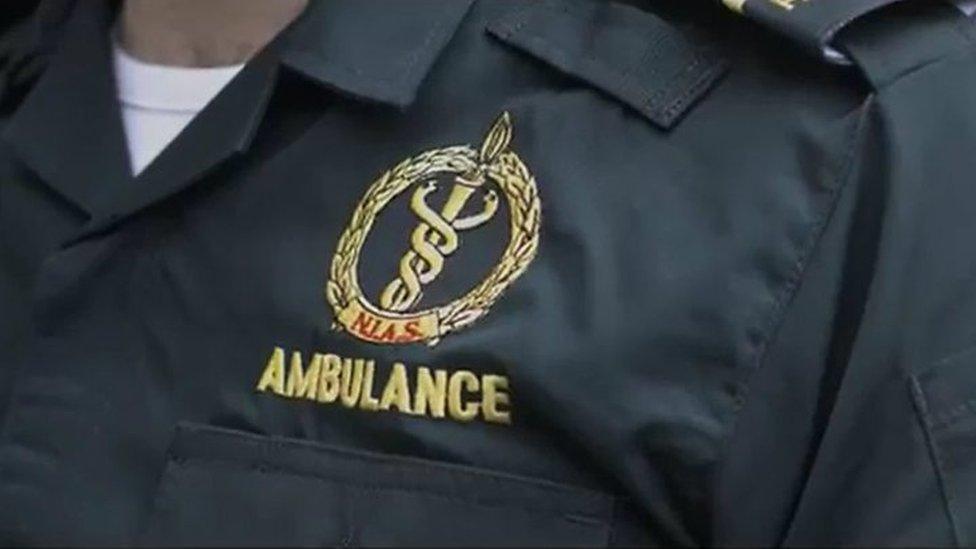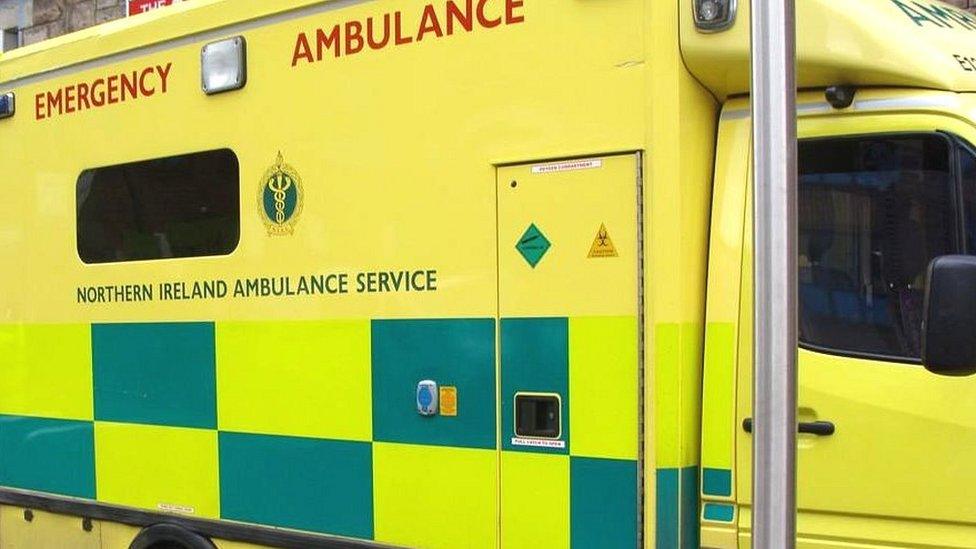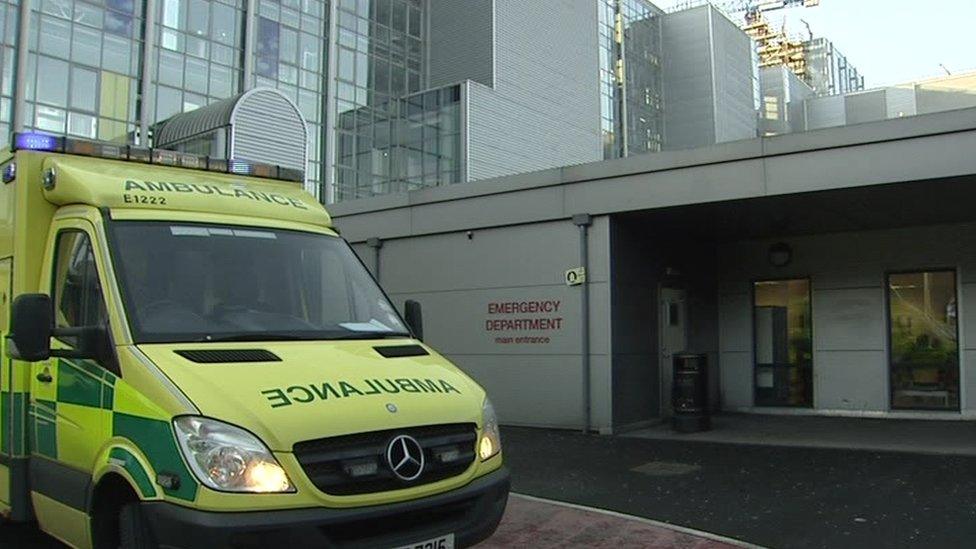NI ambulance crisis: Getting by 'on a wing and a prayer'
- Published

Staff volunteered to work extra hours to keep the ambulance service running over the weekend
Whether through luck or careful planning, the Northern Ireland Ambulance Service (NIAS) got by this weekend without any major incident.
Yet again, it appealed to staff to come into work in order to fill gaps in the rota.
Many of these men and women had already worked a full week.
In fact, many will have gone beyond the call of duty by continuing work to finish two or three hours after their 12-hour shift ended.
The problem is Northern Ireland does not have enough paramedics.
Between 2014 and 2018, practically no new paramedics were trained.
There was no forward planning to allow for those retiring or the high numbers off on sick leave.
All front-line services
This is a familiar story throughout the health service.
All front-line services are reporting gaps.
The Royal College of Nursing is reporting 2,600 unfilled nursing posts. General practice is also reporting too few doctors.
It is a problem across the system and across the UK.
According to sources, wards, surgeries and - as we have known for some time - the ambulance and fire services are often being run on a wing and prayer.
They rely on the goodwill of staff and pray for no major incidents.

It is not unusual for ambulance crews to work across the border between NI and the Republic of Ireland
Moves are afoot to train new paramedics. The NIAS said there would be 100 new staff members by the end of the year.
In addition, 48 current staff members are being trained to become better skilled and to go out on the road saving lives.
That move is funded by £4.7m transformation money. But this change cannot happen overnight - it will take a couple of years.
This is why forward planning is essential in the health service.
Setting politics aside
Something else that seems essential but is often talked about quietly is the need for cross border co-operation.
This weekend's news reports said the NIAS had called on its counterparts in the Republic of Ireland for back-up.
In fact, it is not unusual for this to happen regularly with vehicles travelling in the opposite direction.
I am told that while it does happen, it is "not talked about".
Politics sometimes gets in the way of the health service.
But a well-placed source said that when it comes to saving lives, politics is often set aside and those at the wheel or at the desk just get on with it.
- Published13 August 2019
